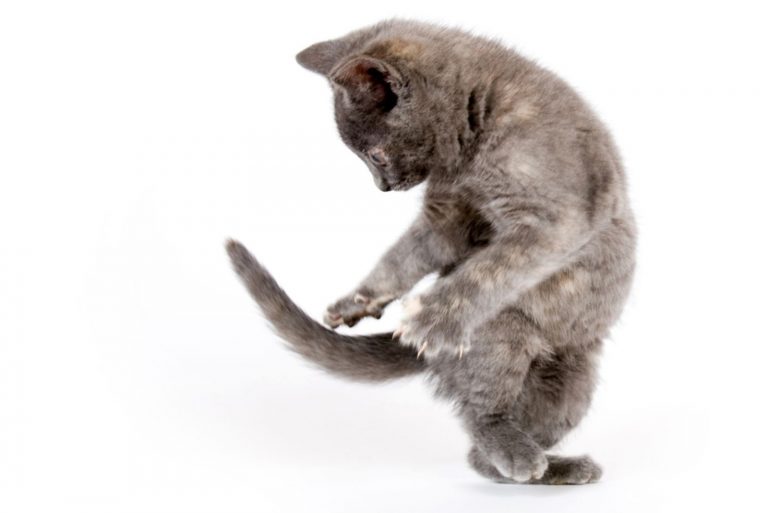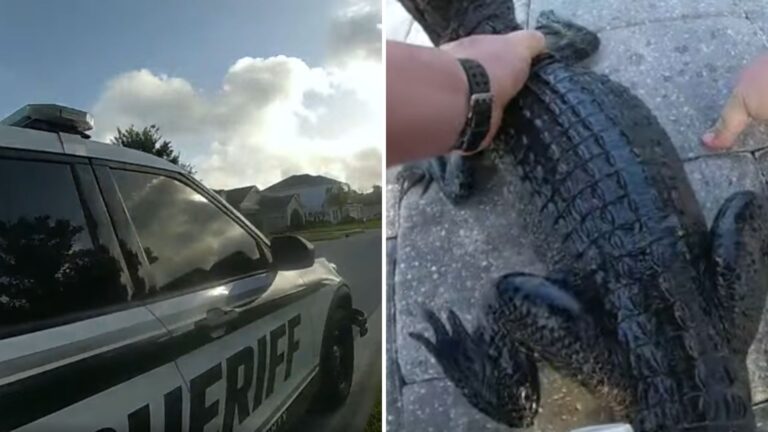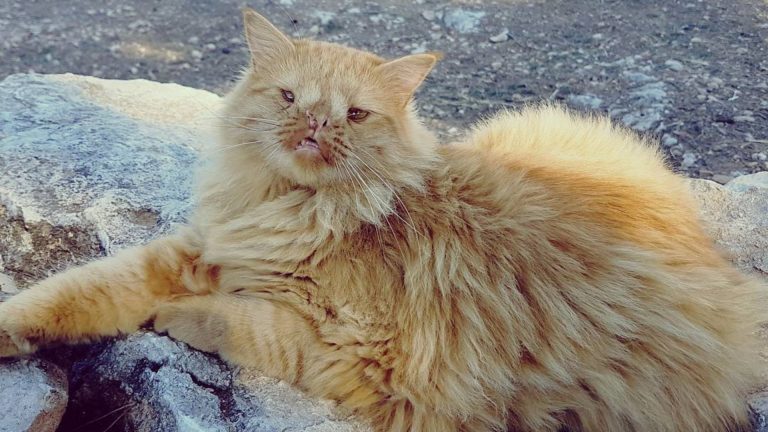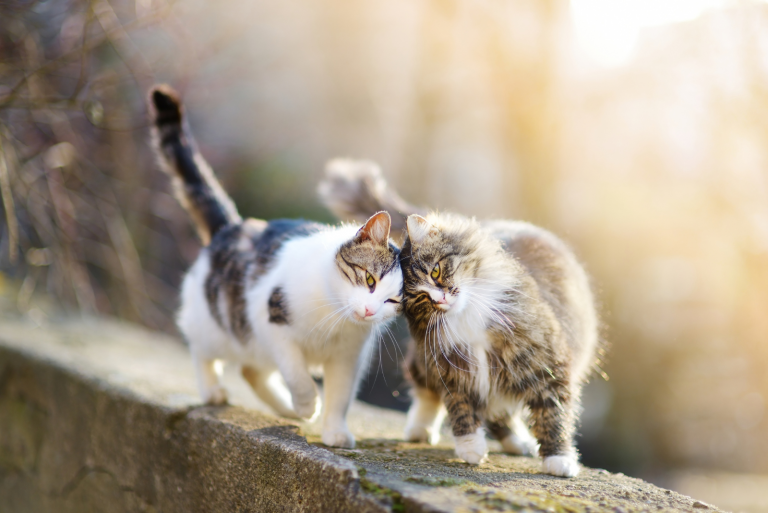Cat Foaming At The Mouth – 12 Reasons + Solutions
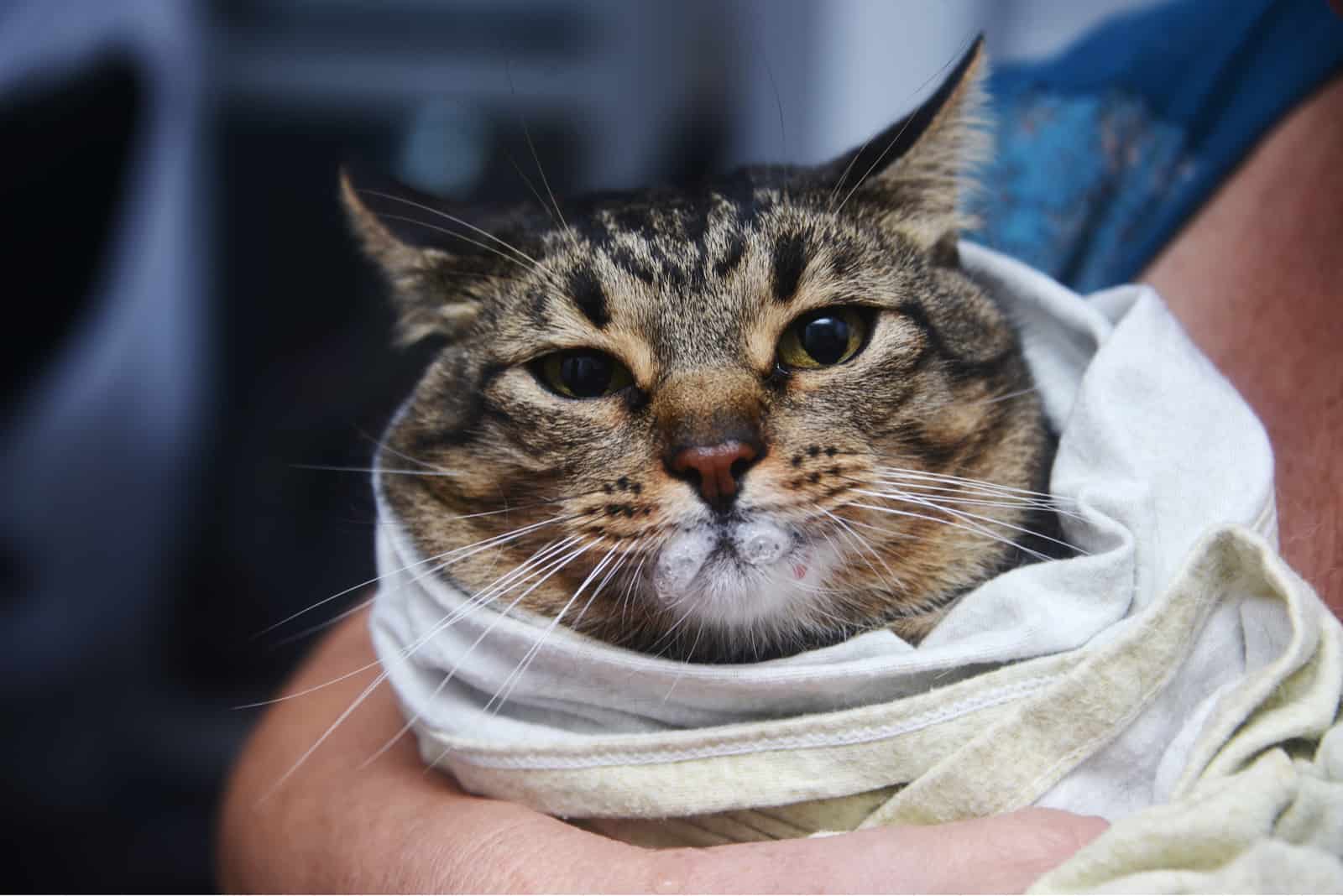
Why is my cat foaming at the mouth? This is something none of us want to ever ask.
Your mind may immediately jump to the worse-case scenario and throw you into a panic. However, don’t be scared – your cat is (most likely) going to be okay!
Truth to be a cat foaming from the mouth can be nothing – but it can potentially be something very serious too!
Continue reading to find out the most probable reasons for your cat drooling or foaming at the mouth, and how to deal with it!
Reasons For A Cat Foaming At The Mouth
1. Your Cat Is Nauseous
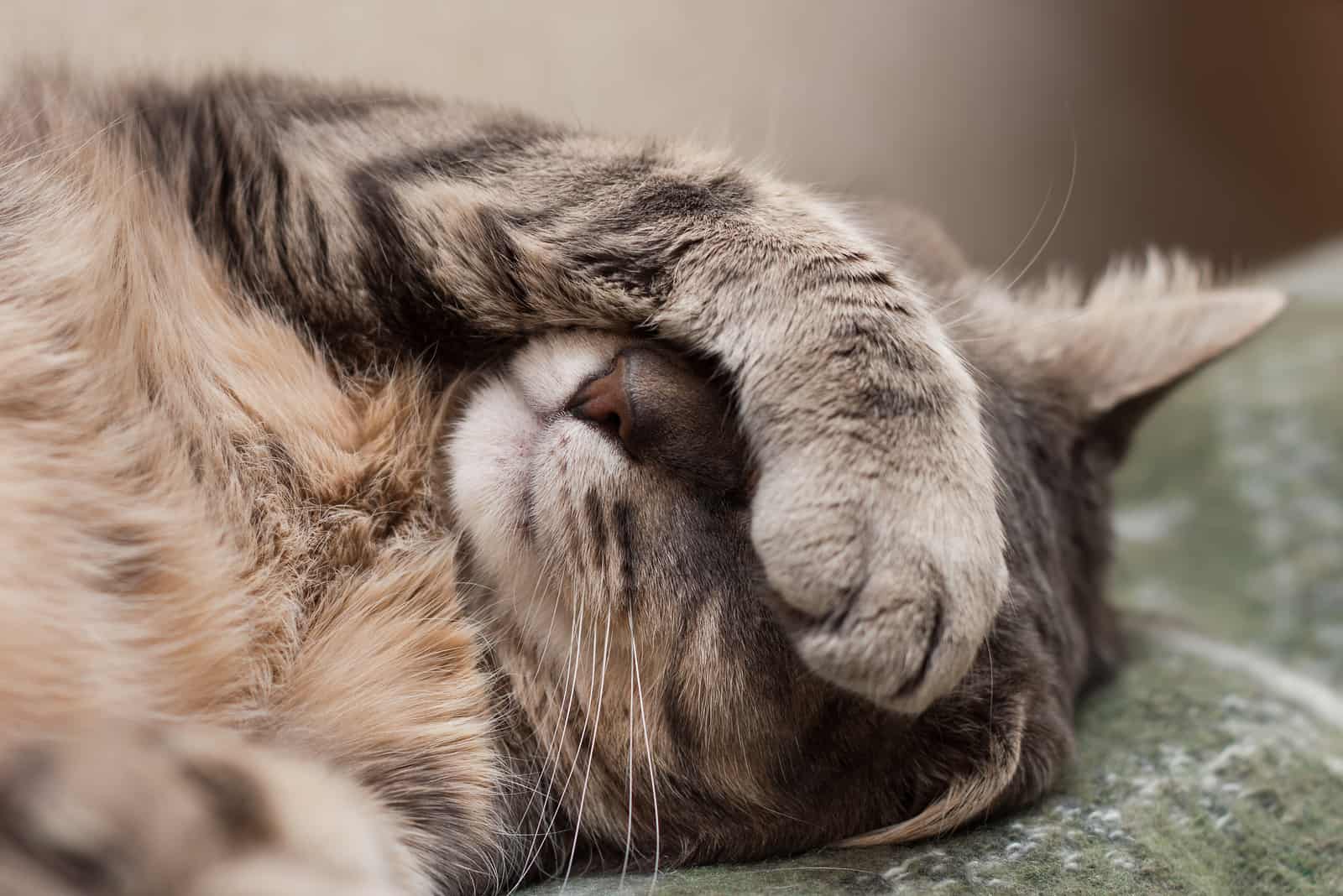
You’ve experienced being nauseous many times and you know it’s a truly terrible feeling. Well, cats can feel nauseous – just like us humans.
The causes for nausea in cats are pretty much the same too:
• car sickness
• overheating
• pregnancy
• being diabetic
Foaming of the mouth is one of the symptoms of nausea, alongside:
• loss of appetite
• exhaustion
• slowed reflexes
• irritability
2. Epileptic Seizure
Excessive drooling and foaming of the mouth is a tale-tell sign of an epileptic seizure.
Epilepsy is not as common in cats as it is in dogs. A seizure usually lasts for a couple of minutes and the symptoms may include the following:
• abnormal posture
• twitching
• drooling and foaming at the mouth
• unusual vocalizations
• convulsions
• loss of consciousness
3. Poisoning
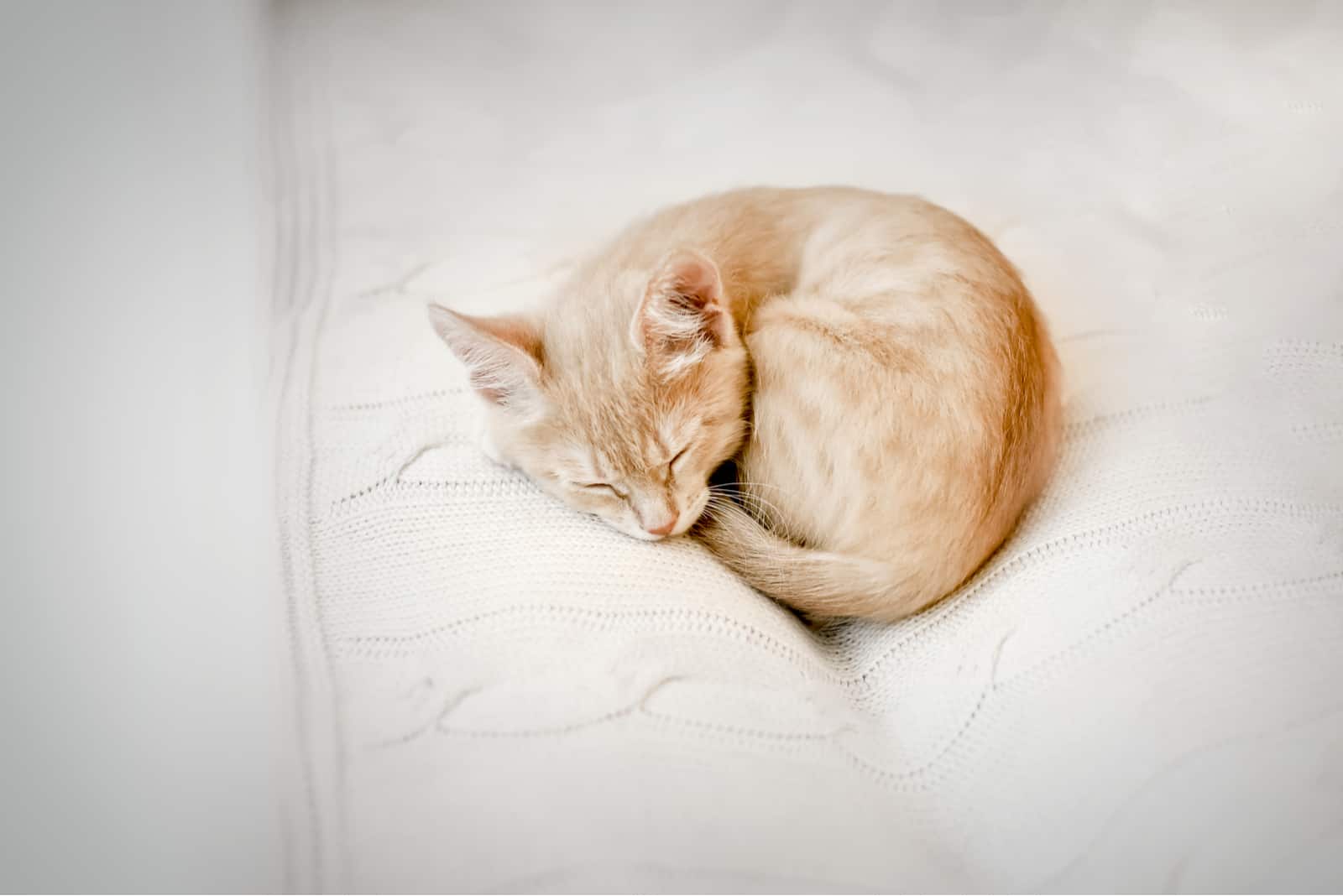
Foaming at the mouth can occur as a consequence of a cat eating something poisonous.
The cat will not actively choose to eat something toxic, but it can happen accidentally, for example if something toxic is mixed with food, or they consume a rodent that has eaten poison.
Many ordinary, everyday items are actually toxic to cats!
Some poisonous household products include:
• soap
• detergent
• insecticides
• shaving cream
• alcohol
• paracetamol/acetaminophen
• weed killer
• certain plants
Symptoms of poisoning:
• drooling and foaming from the mouth
• abdominal pain
• vomiting
• diarrhea
• loss of appetite
• general weakness
4. Rabies
A cat foaming from the mouth is a red flag for rabies.
In fact, foaming at the mouth is one of the most well-known signs of rabies.
Rabies is a viral infection that both cats and dogs can get. The virus is transmitted from animal to animal. Cats get rabies via a bite from an infected wild animal, such as a racoon.
This disease affects the central nervous system, causing inflammation of the brain. It starts spreading from the bite site and it is fatal if not treated on time.
Due to this, it is of the utmost importance that you recognize the symptoms as quickly as possible! If you notice the following symptoms, go to the vet immediately!
Symptoms of rabies are the following:
• your cat having a bite mark
• agitation
• aggression
• excitement
• viciousness towards humans
• drooling from the mouth
• foaming from the mouth
• loss of muscle control – muscle spasms
5. Dental Problems
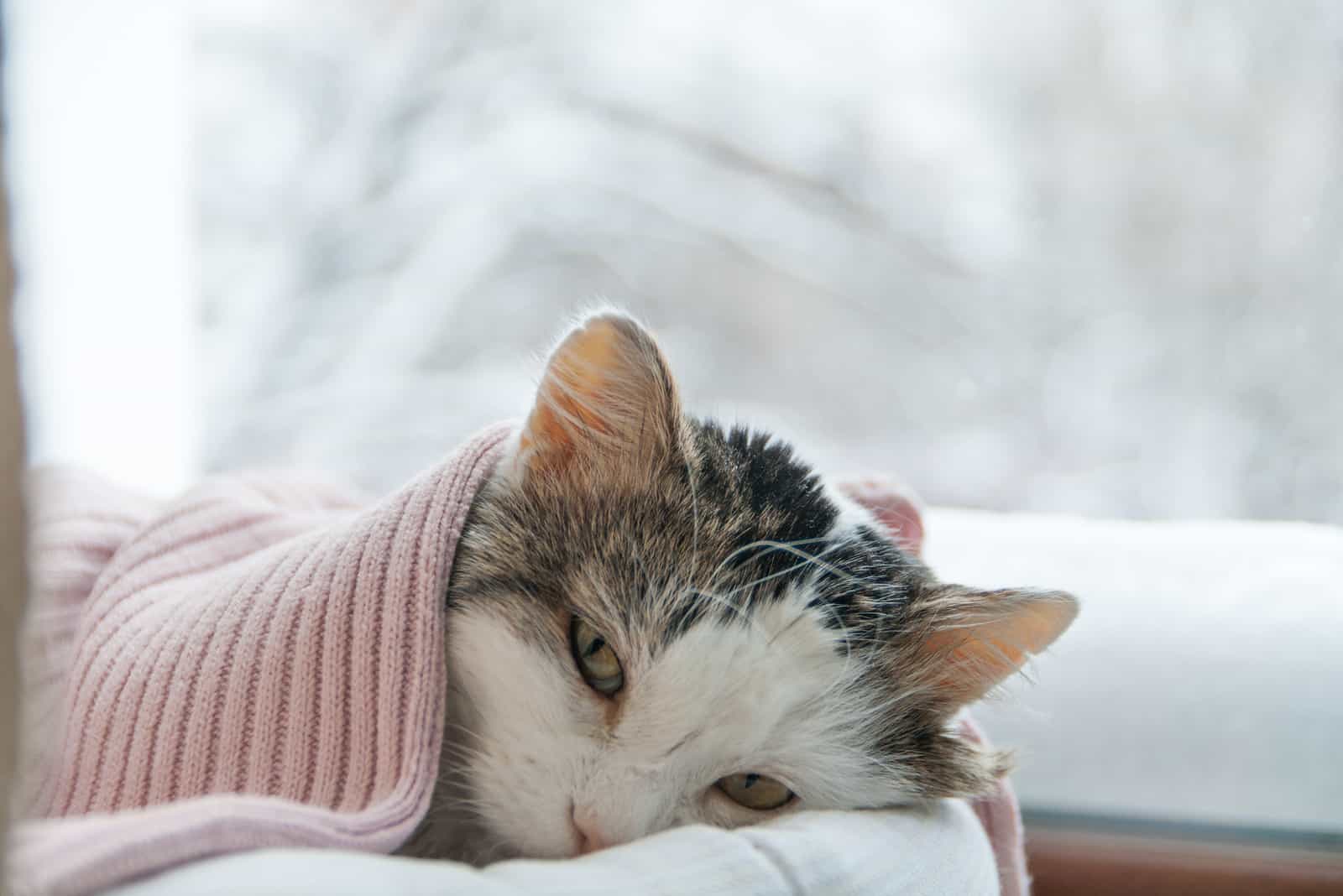
Painful mouth in cats can be the actual source of the problem.
Many painful conditions can develop in a cat’s mouth. Make sure you regularly do a quick dental check-up to make sure everything is okay.
The most common oral issues include:
• Gingivitis -a gum disease characterized by inflamed (red, painful, swollen) gums
• Tooth abscess – collection of pus that forms within a tooth, due to a bacterial infection
• Broken tooth
• Cat’s teeth being rotten
• Oral tumors
Symptoms your cat may be experiencing dental disease include:
• bad breath
• loss of appetite
• difficulty eating
• excessive drooling
• foaming from the mouth
• sore and bleeding gums
• resisting you touching their face
6. Anxiety Or Fear
Cats are prone to stress and large amounts of it can lead to serious health complications.
Your cat can feel anxious for a number of reasons:
• change of environment
• change of routine
• illness or pain
• separation anxiety
• medical problems causing discomfort
Symptoms of your cat experiencing anxiety include:
• excessive meowing and moaning
• lack of appetite
• restlessness
• hypervigilance
• salivation and foaming at the mouth
7. Viral Infection – Calicivirus
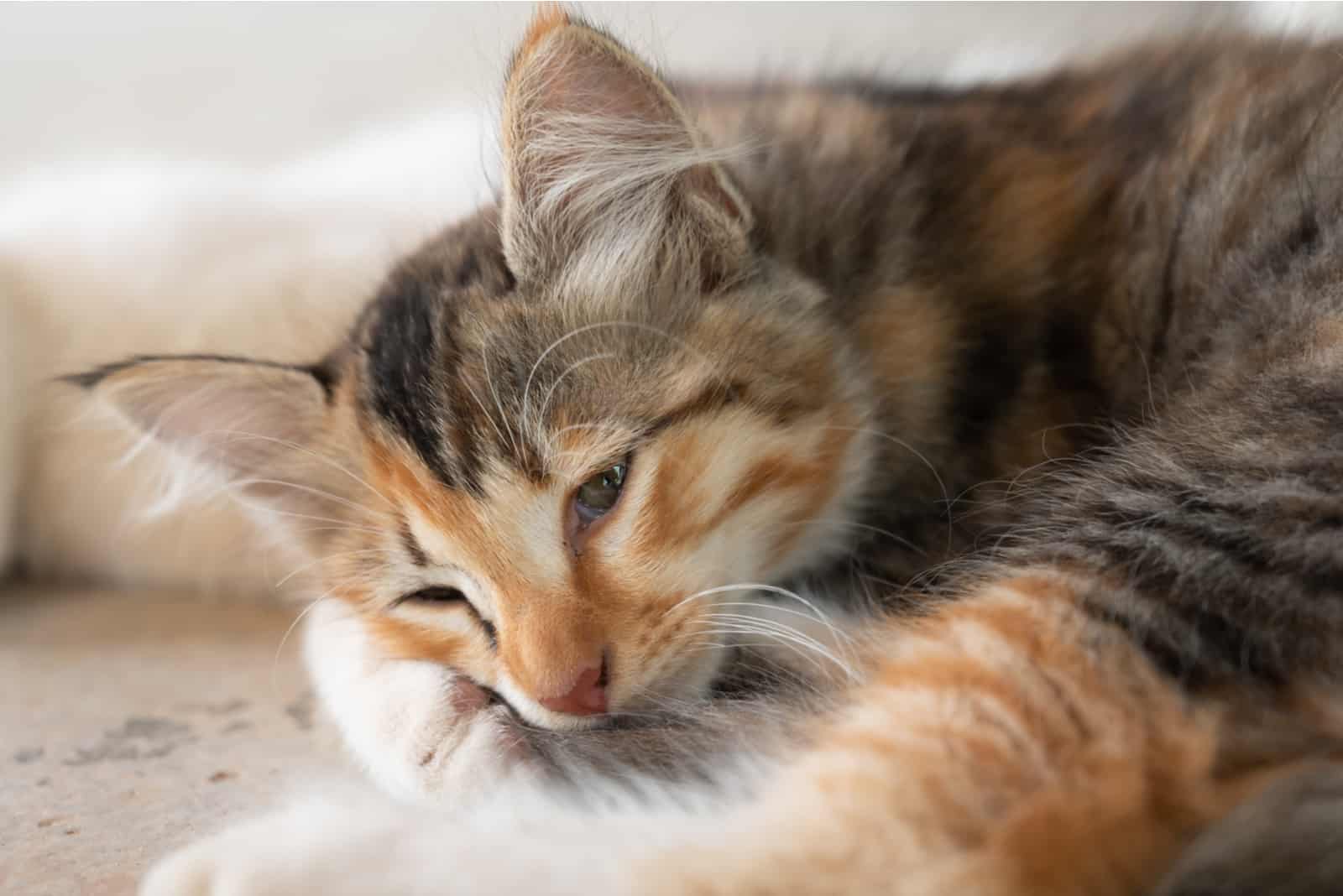
Calicivirus is a virus that causes upper respiratory infection in cats. It must be noted that this is a highly contagious virus that often infects young cats. It is not very deadly, and most cats recover from this viral infection.
This infection is one of the most common causes of respiratory infection.
Cats contract it by being in contact with other infected cats or by being in contact with infected surfaces. It is transmitted by saliva or by fluids of the nose and eyes.
Symptoms of infection via calicivirus are:
• nasal congestion
• sneezing
• conjunctivitis
• discharge from the nose and eyes
• ulcers on the tongue
• excessive drooling
• foaming from the mouth
8. Your Cat Might Have Licked The Flea Treatment
Flea medication is made for external use. It should be applied on the back of your cat’s neck, where it can’t be reached by the cat’s tongue.
If you apply it on the side of the neck, it is not a big issue, but it is not advisable to apply it there. Why?
If your cat licks the flea treatment,it will absolutely hate the taste. The most common reaction is excessive drooling accompanied by foaming of the mouth, which usually lasts about 10 minutes. After that, the symptoms slowly fade away and your cat will be back to normal.
Also, note that this applies to your cat licking flea treatment for cats. If your cat licks a dog’s flea treatment, it can potentially lead to serious health issues, so go to your vet if you notice that this has happened.
9. Your Cat Hates The Taste Of Something
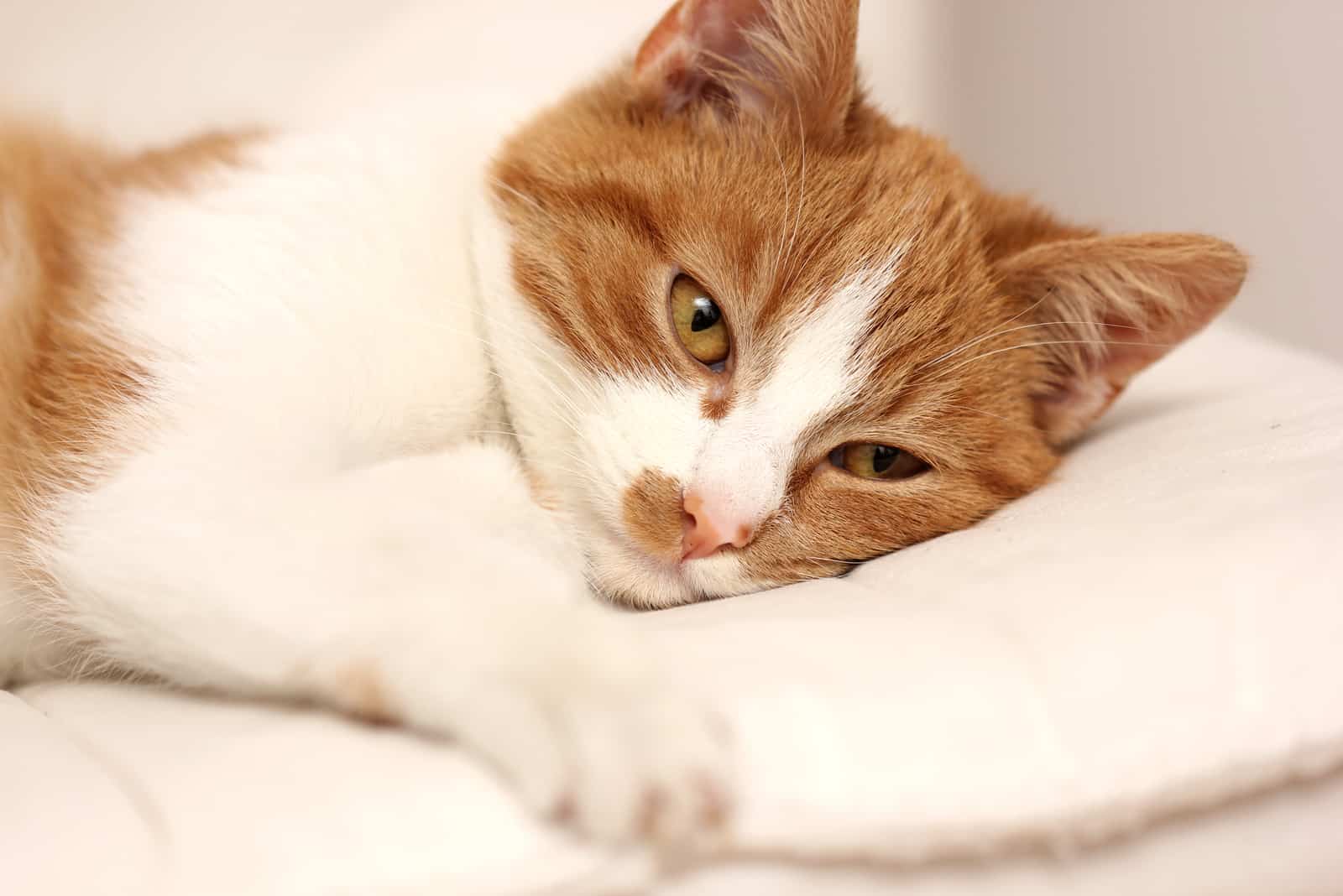
Bitter-tasting food is your cat’s worst enemy!
Cats despise the bitter taste, and a common reaction to it is the cat foaming at the mouth.
A natural reaction to bad flavors is excessive drooling accompanied by foaming at the mouth as the cat tries to get the bad taste out of their mouth.
Apart from bitter tasting substances, your cat can have this reaction to any unpleasant taste your cat experiences – most cats also hate spicy food!
There is nothing you can do about this; you and your cat just have to wait it out.
10. Your Cat Ate Something That Caused An Upset Stomach
You might be the owner of a very curious cat that likes trying new things.
Cats have a long list of things that are toxic for them and a lot of these things can be easily found by a curious cat.
Ingestion of any of the things listed below has been proven to cause foaming at the mouth, alongside a range of other symptoms (most notably – pooping troubles).
• a frog
• a toad
• a stink bug
• a shrew
• spicy food
• tabasco
• a lot of catnip
• mushrooms
• shaving cream
• antifreeze
The list truly is a lot longer than this, but these are some common examples.
11. It’s A Side Effect Or A Reaction To A Medicine
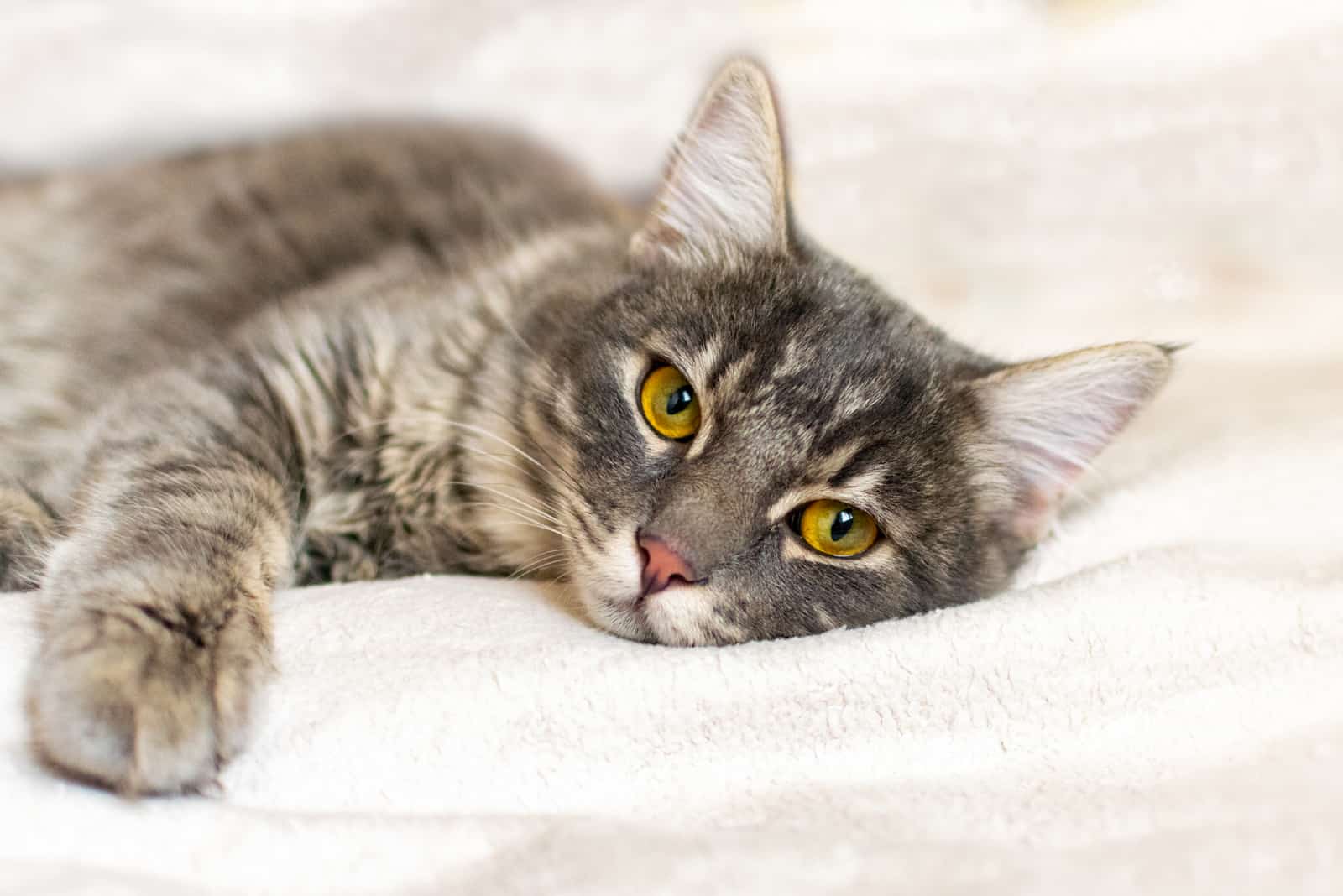
Considering your cat absolutely hates bitter tasting substances and a lot of medicines are very bitter, you won’t be surprised to learn that your cat may have a reaction to it.
The most common symptoms if your cat hates bitter tasting medications is drooling and foaming at the mouth. You can expect this reaction if you’re giving your cat some antibiotics, deworming medicine, or an antihistamine such as benadryl.
Benadryl is known for being absolutely hated by cats. It is a medicine given to relieve symptoms of many allergies, fever, and common cold.
Again, there is nothing you can really do except wait for the reaction to the bad taste to pass. Remember this is harmless, so don’t worry!
12. Your Cat Might Have A Disease
Foaming from the mouth can a sign your cat has one of the following diseases:
• Kidney Disease
Cats with kidney disease have a buildup of toxins in their blood due to their kidneys being unable to detoxify the blood.
Other symptoms your cat may have alongside kidney problems include lethargy, loss of appetite, weight loss, excess thirst, diarrhea, vomiting, etc.
• Liver Disease
Other symptoms your cat might have with liver disease include sleeping more than usual, increased drinking, loss of appetite, vomiting, fever, abdominal swelling, etc.
• Gastritis
Gastritis is inflammation of the lining of the stomach, characterized by excessive vomiting and decreased appetite. The vomit usually contains white foam, which is actually bile.
• Stomatitis
This is a painful inflammation of the soft tissues of the mouth, other symptoms include bad breath, difficulty chewing, refusal to eat, drooling, etc.
• Pancreatitis
Vomiting white foam can is a common sign of pancreatitis, alongside nausea and abdominal pain. Pancreatitis is an inflammation of the pancreas that can be acute or chronic.
If you notice any of these signs – go to the vet!
What To Do When You Notice Your Cat Foaming At The Mouth
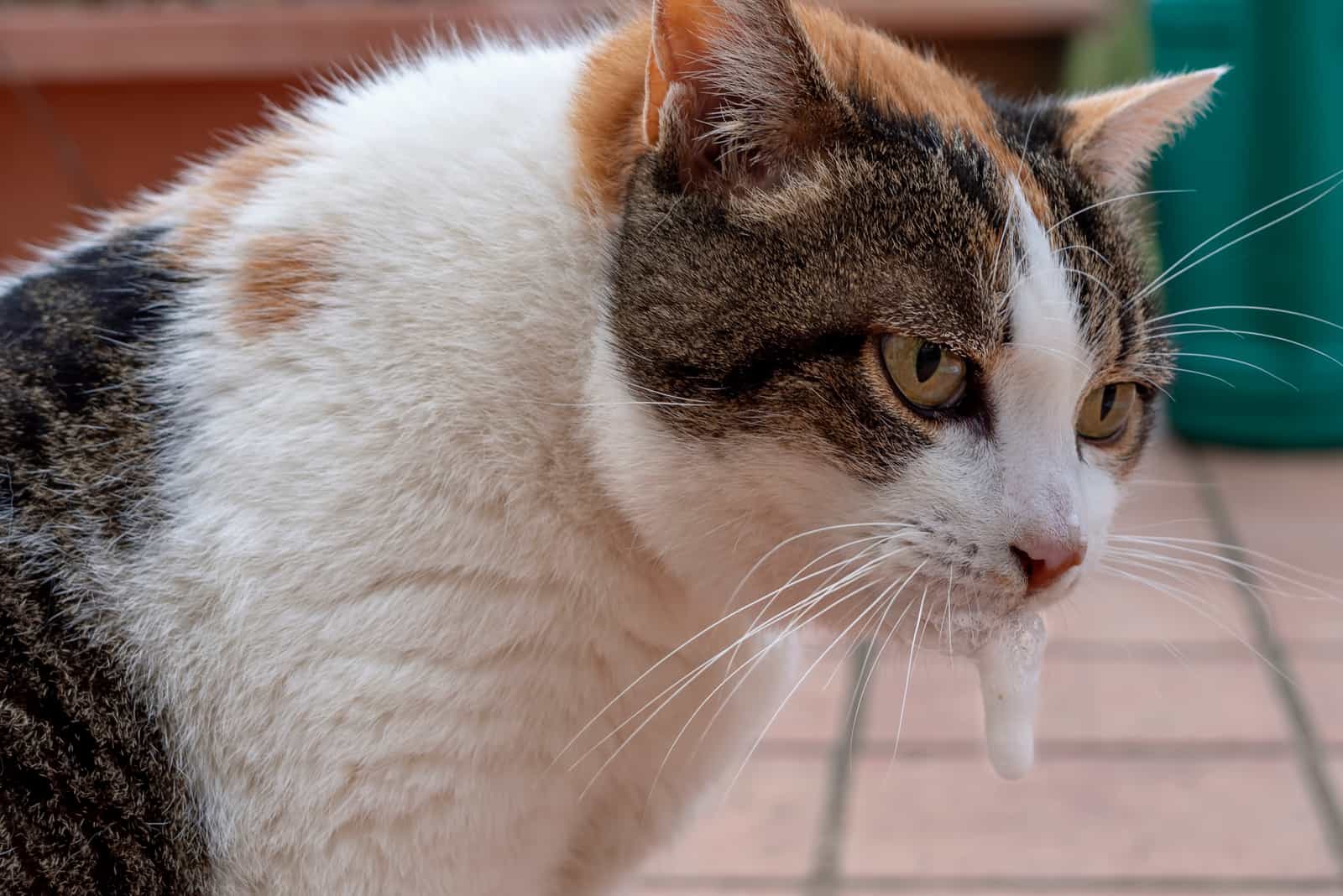
Below are the best two tips we can give you, if you notice your cat foaming from the mouth.
1. Take Your Cat To The Vet
Foaming at the mouth is not normal and it is best to pay a visit to the vet.
Epileptic seizures are an extremely serious matter and every seizure can lead to brain damage and other health issues.
If you suspect your cat has epilepsy, go to the veterinary office immediately! Your DVM (doctor of veterinary medicine) will know what to do.
Also, if you observe your cat has dental issues, has eaten something that it should not have, has symptoms of calicivirus or any of the diseases listed in this article (kidney disease, liver disease, etc), you need to visit the vet as soon as possible.
2. Remove Your Cat From The Nausea And Anxiety-Causing Environment
If your cat is foaming from the mouth because it is not feeling well, get your cat out of any stressful situation and make sure it is not overheating.
Try finding the cause of your cat’s anxiety and make sure to deal with that properly.
An Important Tip!
Make sure your cat gets its rabies shots on time!
The law requires cats to get a rabies vaccine in their first year of life. After that, a cat should receive a booster shot 1 year after the first vaccine, and then every 3 years.
The best cure is prevention! Especially in the case of rabies as when your cat starts showing symptoms, unfortunately there isn’t much you can do.
4 Signs Your Cat Should Go To The Vet
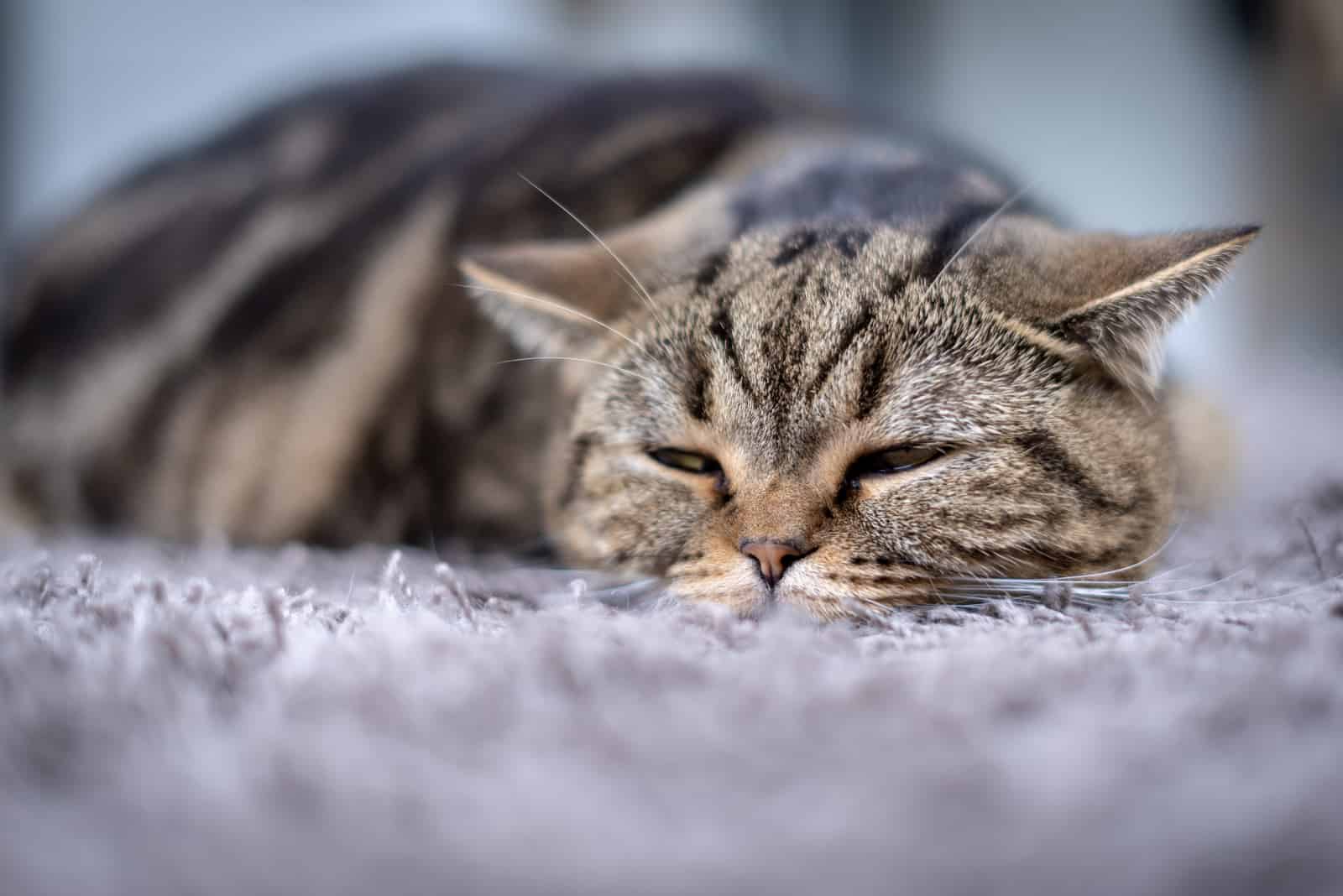
Below are some clear signs that scream: “Take me to the vet!“.
1. When you observe a bite
It is time to go to the vet when you notice that your cat has been bitten by another animal. This can be extremely dangerous for your cat’s health.
The other animal may be another stray cat or dog. When is it time to go to the vet? As soon as you notice a bite!
2. When your cat changes behavior
If your cat starts acting out of the ordinary all of a sudden, it is best to have it checked out. You, as an owner, will probably notice the changes very easily.
Observed changes include changes in temperament, level of excitement, level of aggression, level of distress, appetite changes, and similar.
Changes in behavior are a common sign that your cat is not feeling well and there is an underlying issue. When this is accompanied by cat foaming of the mouth, you need to see a DVM (doctor of veterinary medicine).
3. If you know your cat ingested something it should not have
Foaming and frothing of the mouth are a common symptom of poison ingestion.
The list of potential poisons for cats is a very long one, from common household items and human foods, to known toxins such as medication, pesticides, and plants.
This can be very dangerous since cats are sensitive to very small amounts of poison. For example, something that a small dog would not even notice, can kill an adult cat.
4. If your cat loses consciousness or muscle control
These signs are not good. Immediately seek veterinary help.
Loss of consciousness or muscle control can be a sign of exhaustion, epileptic seizure, rabies or your cat might be having a severe reaction to medication or something they ate.
How To Prevent Foaming From The Mouth
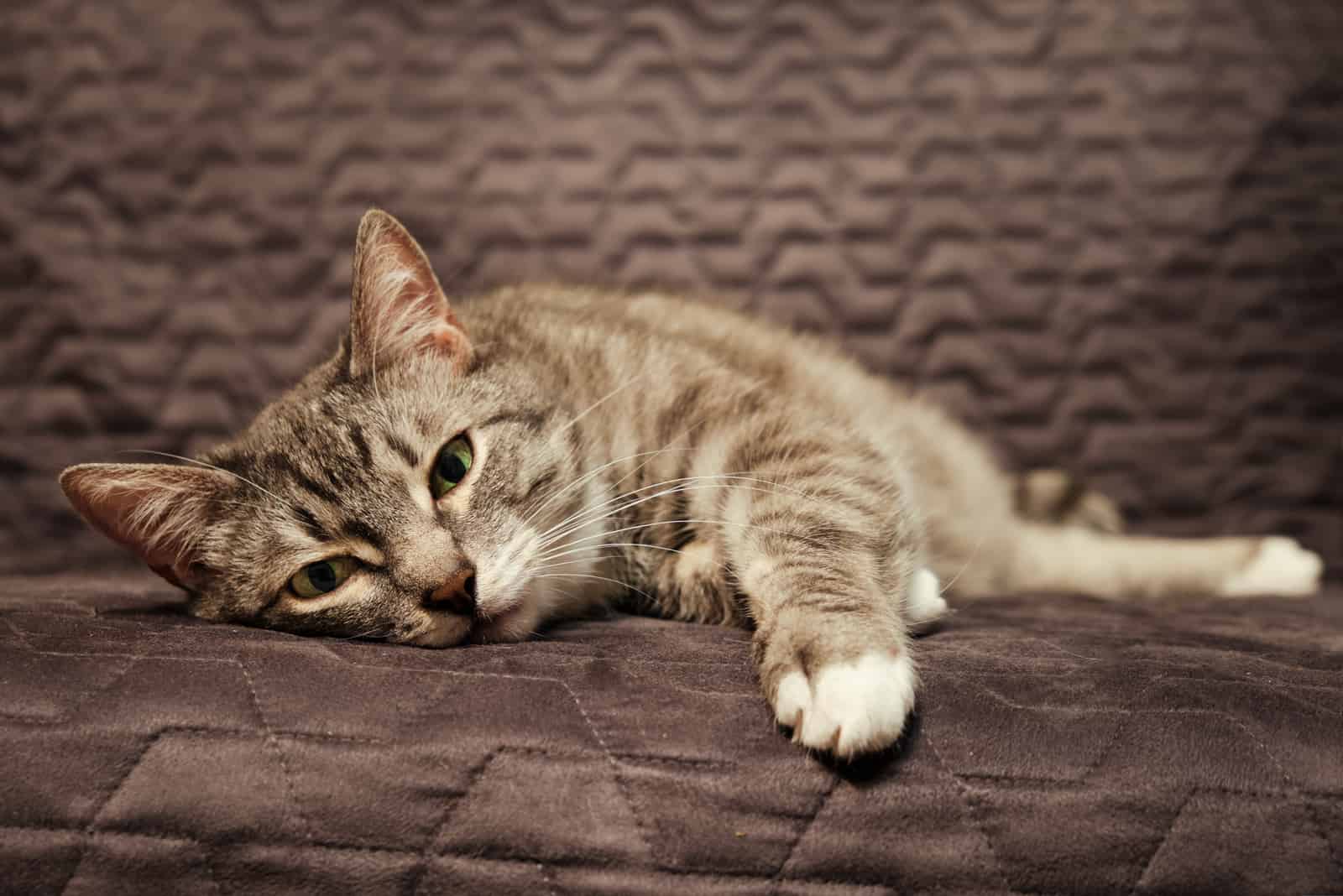
• Have your cat receive a rabies shot in order to be protected against rabies.
• Provide a stress-free environment to avoid anxiety-caused foaming.
• Go to dental appointments regularly – this will prevent many dental issues.
• Maintain good overall health – go to vet appointments whenever you notice something is wrong – you can prevent disease!
• If your cat is overly curious, keep dangerous foods and products out of reach and keep a close eye on what your cat is eating and licking.
• If your cat has eaten something bitter, for example it has licked a flea treatment or this is an unpleasant tasting medicine side effect – there is nothing you can do except wait for it to pass.
A Few Things You Should Know!
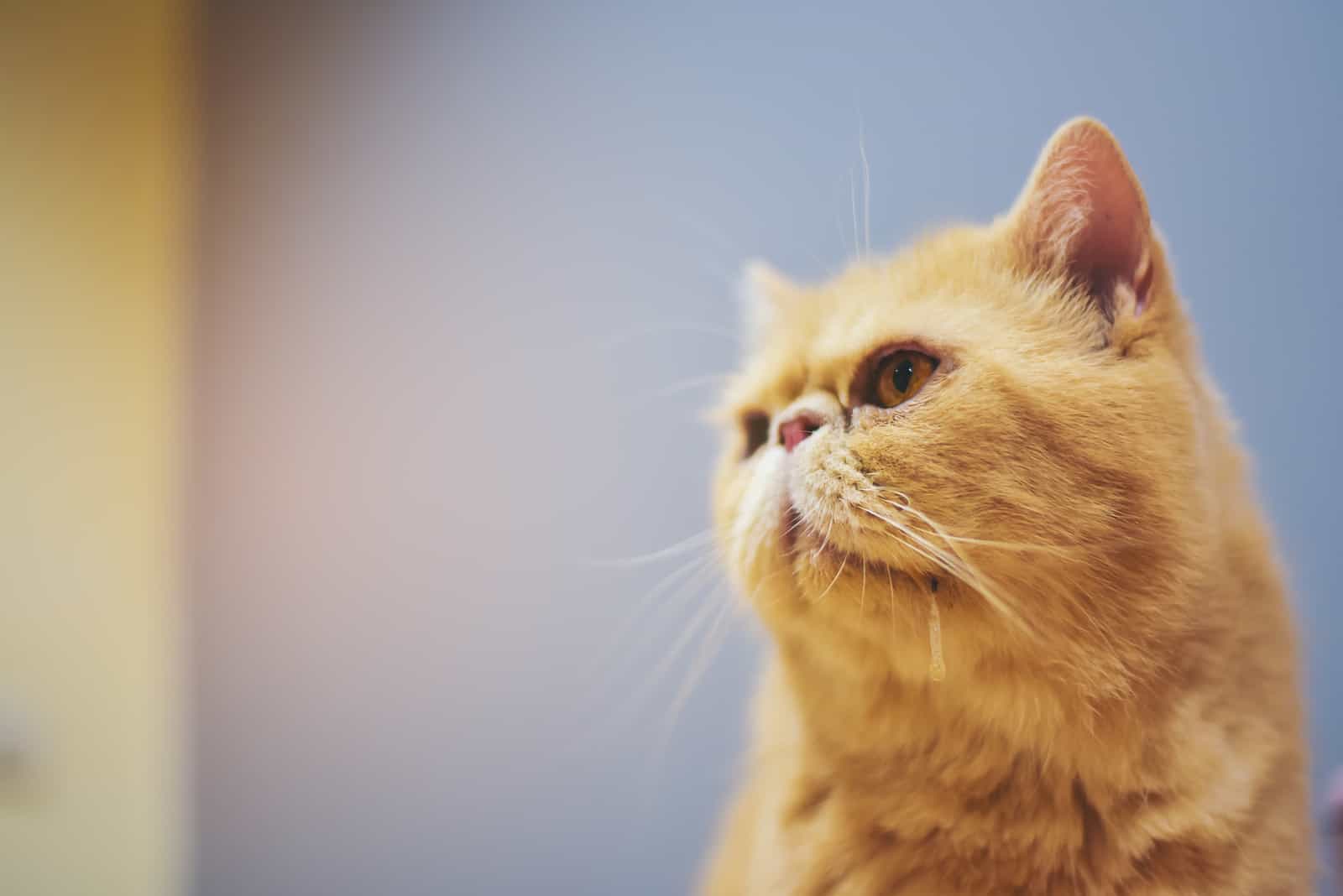
Even though a cat foaming at the mouth is not something your cat will experience often (and hopefully never will), there are a few things you should know in case it happens.
What Is The Most Common Cause Of Cat Foaming At The Mouth?
There isn’t really one cause that is the most prevalent (no one keeps a database really).
One thing everyone will immediately tell you when you mention cat foaming at the mouth is rabies. Indeed, foaming is a classic tale-tell sign of rabies.
The most important thing is that you know the circumstances of your cat foaming from the mouth.
Have you given your cat new medicine? Was your cat bitten recently? Does your cat have signs of dental disease? If your cat has anxiety, was there anything that could have caused an anxiety attack? Was your cat outside and could have eaten something toxic?
By answering these, you can determine if your cat foaming at the mouth is something serious or not.
How Long Does The Cat Foam At The Mouth?
This will depend on the reason your cat is foaming from the mouth.
If it is for harmless reasons such as your cat hating the taste of something, foaming should last about 10 minutes and it should not recur.
If your cat’s mouth is foaming due to other, more serious reasons, there are no rules. However, one thing is sure – it will not simply last 10 minutes and never appear again. It may happen repeatedly a few times throughout the day. This is a sign something is wrong.
Is It Normal For Cats To Foam At The Mouth?
If you said No, your answer is spot-on.
Foam coming from the mouth is not really normal.
It can be harmless, yes, for reasons such as eating bitter-tasting substances or licking the flea medicine. However, cats foaming at the mouth is not normal.
Make sure to have regular health check-ups with the vet in order to prevent foaming from the mouth in the first place.
In Conclusion…
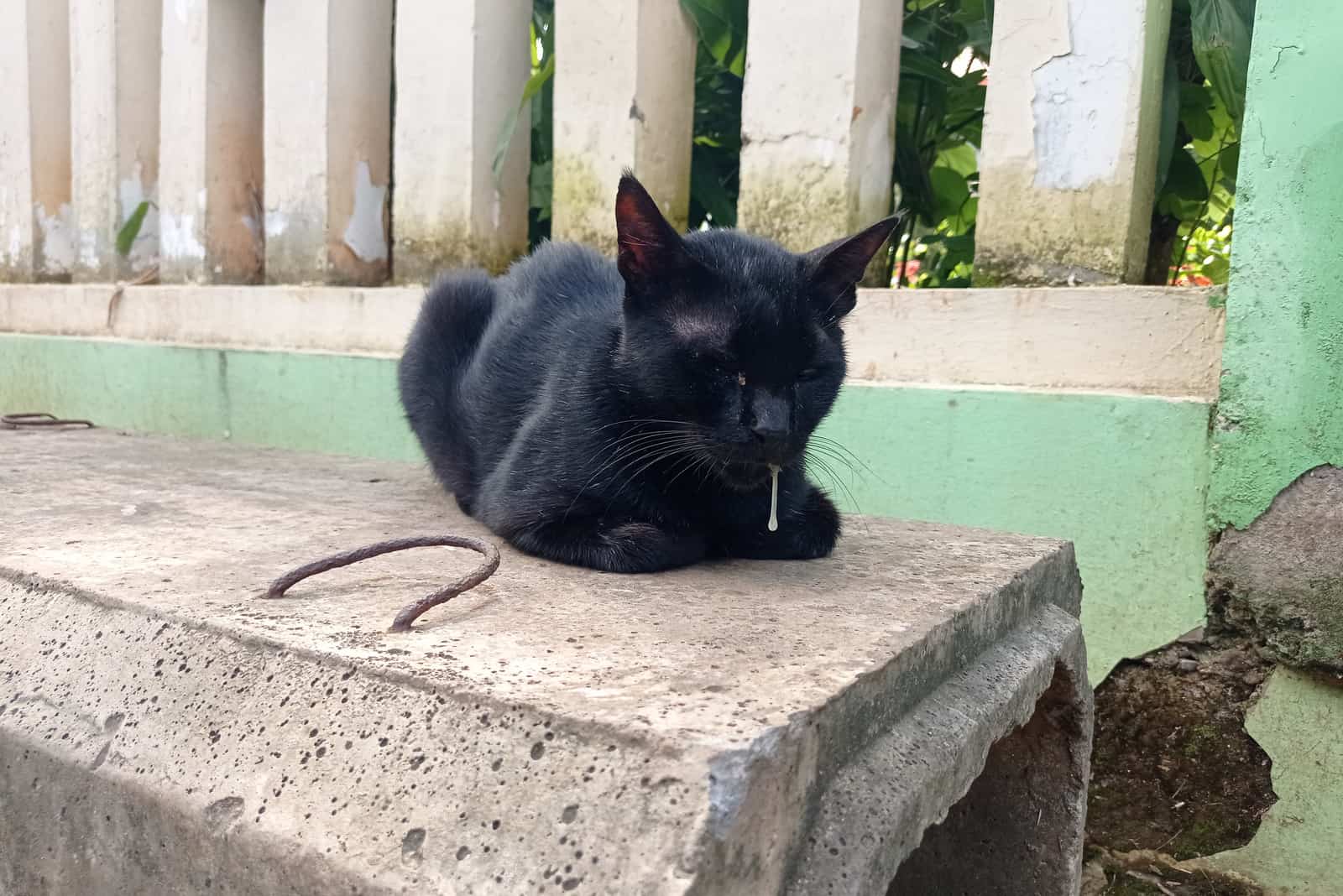
A cat foaming at the mouth can be a relatively harmless occurrence, or it can be a sign of something very serious.
If you know your cat has experienced something mild that can lead to mouth frothing such as overheating, anxiety, known dental problems, or is experiencing side effects of swallowing a medicine or something bad – there is no need for concern.
Make sure to keep a watchful eye on your cat in case your cat’s health deteriorates.
If you observe signs of a more serious threat such as a bite mark, abnormal behavior, and physical health deterioration – you need to immediately seek veterinary attention!
The most important thing is to monitor your cat’s health and act quickly.
Related Articles:
Cat Swallowing A Lot – Symptoms, Conditions & Treatment
Can Cats Breathe Through Their Mouth? Everything You Need To Know


